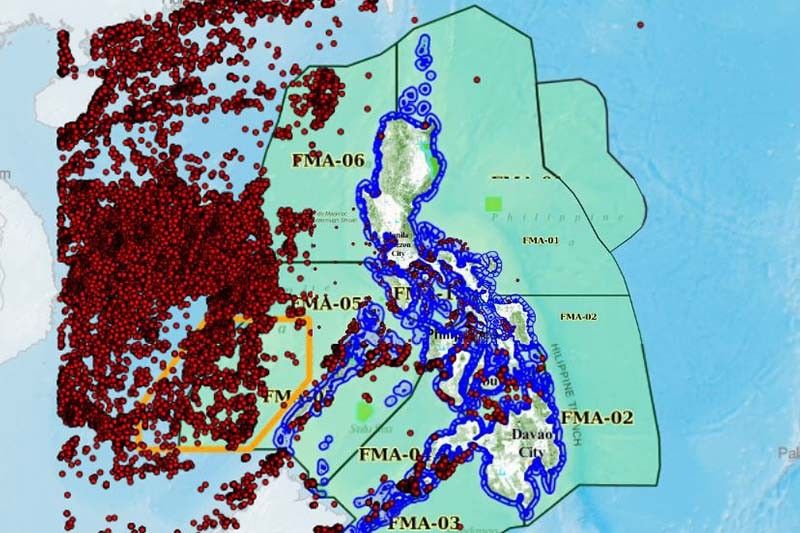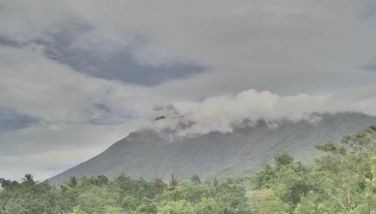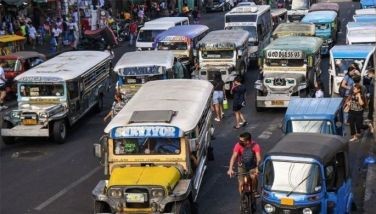Oceana: Commercial fishing boats seen in municipal waters as gov't preoccupied with COVID-19 fight

MANILA, Philippines — Commercial fishing operators have taken advantage of the government agencies' preoccupation with combating the spread of the new coronavirus in the country by entering areas meant for small-scale fishermen, a non-government organization said.
In a statement, Oceana called on national government agencies and on local government units to intensify their maritime patrols to stop commercial fishing boats from entering municipal waters.
Under Republic Act 8550, or the Philippine Fisheries Code of 1998, municipal waters extend only up to 15 kilometers from the coastline and also include streams, lake, inland bodies of water, public forest, timber lands, forest reserves or fishery reserves.
These waters are supposed to be for municipal fishing, or "fishing within municipal waters using fishing vessels of three gross tons or less, or fishing not requiring the use of fishing vessels."
Lawyer Gloria Ramos, Oceana vice president, said that "while national and local government agencies are busy performing frontline duties to combat the COVID-19 crisis, it was observed that some commercial fishing operators are exploiting it as an opportunity to violate the law."
Activities of commercial fishing boats
According to Karagatan Patrol, an online platform for reporting illegal fishing established by Oceana and the League of Municipalities of the Philippines, more than 500 of the vessels detected in the municipal waters in some towns of Palawan, Masbate, Quezon and in the Zamboanga Peninsula between March 22 and 28 were possibly commercial fishing boats.
At the top of the list is Milagros, Masbate in the Visayan Sea with 72 detections of fishing boats of commercial scale. Last year, the weekly average number of commercial fishing vessels detected in Milagros was only 34.
The biggest increase was recorded in Busuanga, Palawan from a weekly average of only five commercial fishing vessels to 53 between March 22 and 28.
| City or Municipality | March 22 to 28, 2020 | Weekly average in 2019 |
| Milagros, Masbate | 72 | 37 |
| Tongkil, Sulu | 67 | 66 |
| Cuyo, Palawan | 64 | 19 |
| Zamboanga City | 60 | 66 |
| San Jose, Occidental Mindoro | 59 | 11 |
| Busuanga, Palawan | 53 | 5 |
| Magsaysay, Palawan | 48 | 14 |
| Calauag, Quezon | 40 | 21 |
| Aroroy, Masbate | 33 | 11 |
| Unisan, Quezon | 30 | 11 |
Karapatan Patrol monitors commercial fishing vessels’ behavior using a satellite-based surveillance technology called Visible Infrared Imaging Radiometer Suite.
But the VIRRS shows only lights emitted by fishing boats at night. The technology does not capture fishing boats that fish during the day.
"Heartened by local chief executives who continue to enforce our fisheries laws amid the crisis, we request more coastal local authorities to keep their fishery enforcers alert while closely watching over cases of COVID-19 among their constituents," Ramos said.
She added: "Our municipal waters provide food for our people including many marginalized sectors, more so at this time."
The inter-agency task force coordinating response to the COVID-19 threat announced on March 25 that healthy fishers and farmers would be exempted from quarantine restrictions since they are essential in ensuring food security.
The coronavirus outbreak in the Philippines has so far infected 2,633 people—107 of whom have died.
- Latest
- Trending
































